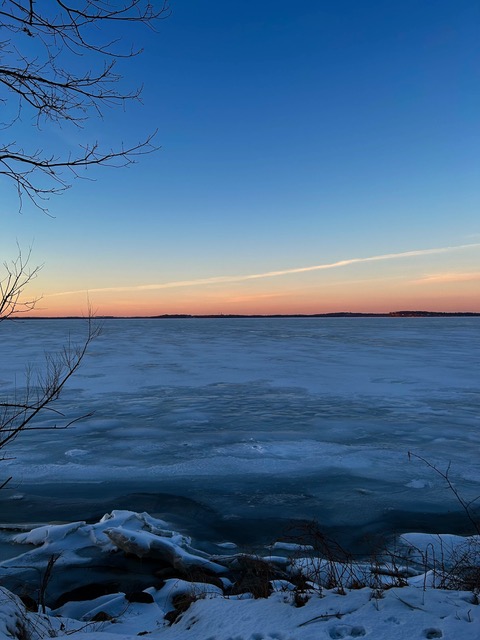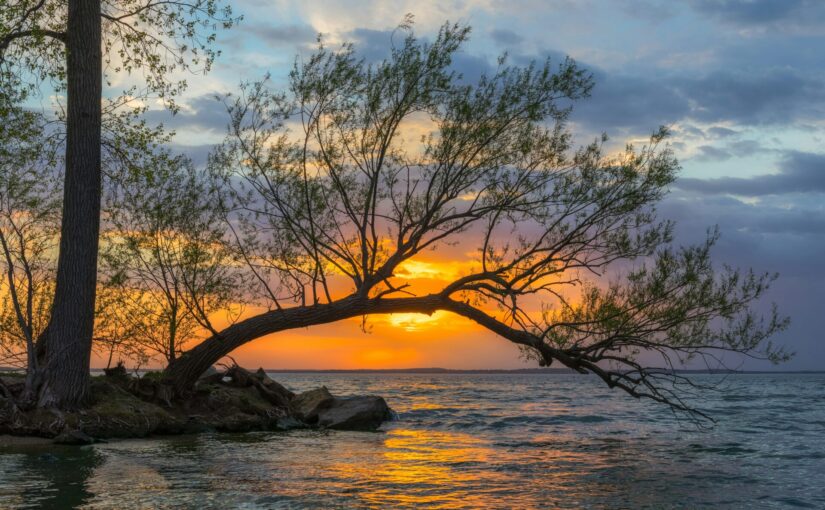Field of study in Wageningen: Food Technology
Study period exchange: 20/01/2023 – 12/05/2023
Country (exchange): USA
City (exchange): Madison
University (exchange): University of Wisconsin – Madison
Faculty (exchange): College of Life Sciences and Agriculture
2. Motivation for exchange
Why did you choose to go on study exchange?
It seemed like a nice choice. Since we have 30 ECTS worth of electives anyways, I thought that it would be nice to see a different system than the one I’m used to.
What is the reason you chose for this country/university?
Originally, I wanted to stay in Europe, but BSc courses in Europe are usually in the language of the country you are in, not in English. Thus, I ended up choosing between English speaking countries. I always wanted to visit USA, and I have never been there prior to the exchange. My GPA was good enough and I could afford going there, which was the final factor that motivated me to apply.
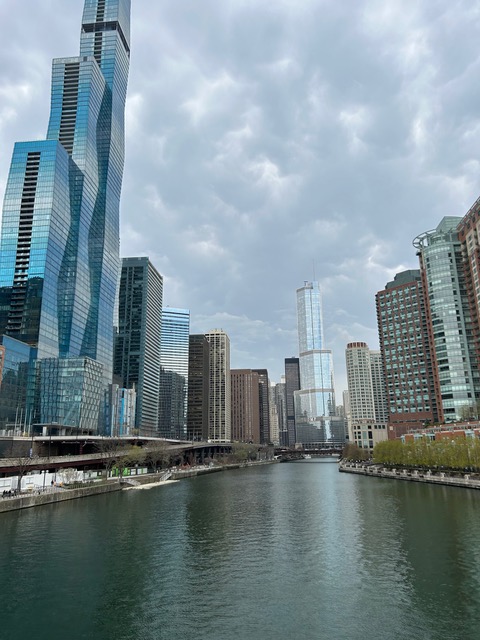
3. Accessibility to reach destination
Do you have any tips to reach your exchange destination?
USA is basically only reachable by plane. I took a Delta flight from Amsterdam to Detroit, and then another one from Detroit to Madison. A lot of people fly to Chicago, and then take a bus to Madison (~ 4 hours).
4. University and studying
Could you provide some general information about the followed courses?

How is the study formalized?
The study culture is very different in America. There are various homework and group project, on which you need to work during your own time, and not during class time. The final grade usually depends on your midterm, homework, lab reports and final exam, so the final exam grade could be as little as 15% of your final grade. The exams may differ based on a teacher – many of my exams were open book (all Integrated Food Functionality exams), and only Earth’s Soil exams were multiple choice. The level of classes may be challenging, but generally, the classes are easier than at WUR. It is advised to go to lectures in person, as they are mostly not recorded anymore.
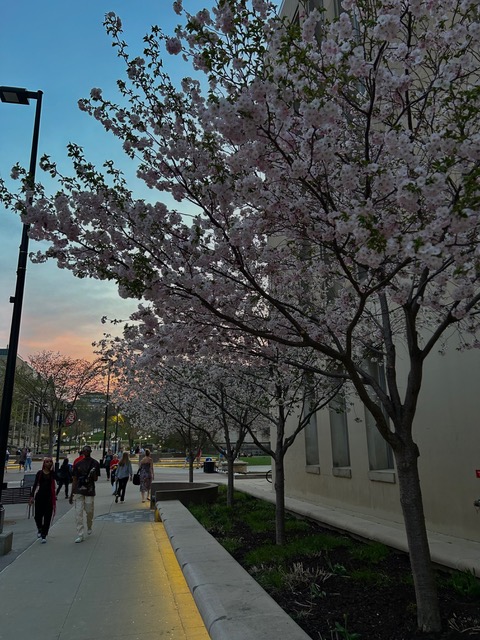
What is the culture of the university?
At UW, food science is a very small major (~16 students in a year). Teachers are very approachable and will probably know your name, and the fact that you are an exchange student, on the first day of classes. I was introduced to classmates in all my food science classes by the teacher. Local students are extremely friendly and welcoming, excited to know an exchange student, and will happily help with schoolwork, any questions that might arise, or just generally getting to know the city. Some big classes (in my case, Earth’s Soil and World Hunger, both had over 100 students) will make it more difficult to interact, but the teachers are still very approachable. All teachers have office hours every week, where you can go and ask all your questions about course material or homework.
What does the university offer the student additionally?
The university offers free sports facilities. The available facilities are two very modern gyms – the new one opened in April 2023. The gyms have a few floors each, and the new one also contains massage space, ice rink, rooftop strength equipment in more. The older gym has an Olympic sized swimming pool. Note: fitness classes are not covered, and one needs to pay a fee to join. Laundry ($3/load), as well as catering, is mostly provided in university housing, which I will cover later. Moreover, university campus has many dining spots, cafes, ice cream places and more. At these locations, you can pay with a regular bank card, or Wiscard (your university ID). The university has many professional sports teams, as well as non-professional ones. Every semester, there is a student organization fair, where over 300 organizations showcase themselves. These organizations can be divided into culture, languages, study programme, sports, sororities and fraternities, and more.
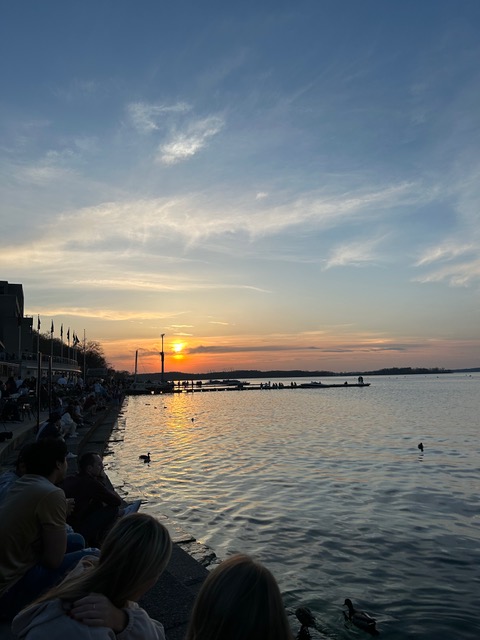
5. Housing-travelling-living
What are the possibilities for housing?
Campus offers residence halls. Residence halls are rather popular with first- and second-year students, so it might be difficult to get a room there in fall semester. I did not experience troubles in spring, despite being repeatedly told that they have a room shortage. Living in residence halls usually means having a roommate (or more than one). Single rooms are not very common in residence halls. You usually share the bathroom with the entire wing. Residence halls are divided into low, mid, and high price points, and there are over 30 different buildings spread across campus. If you choose to live in residence halls, you will need to prioritise 7 halls of choice (and the room type, from available types). The room will be awarded to you based on availability and your priority list. Living in university housing will require you to purchase a dining plan (10, 14 or unlimited number of meals per week). The price of dining plan goes from $1500 to $2100 per semester (at time of writing). There are a few dining locations (approximately 7, spread across campus). Dining locations are located in certain university halls, so it might be wise to research hat beforehand. My total for the semester was somewhere around $6500, which rounds up to about $1000 dollars per room/month (university hall of “mid” price point), and you do live with a roommate. Off campus housing is possible, but I did not research it very much. Prices seem to be around $1000 or higher, but it will be difficult to get a lease for only one semester. Usually, the lease runs for the entire year, so you might need to find a person to sub rent from you, if you only go for one semester.
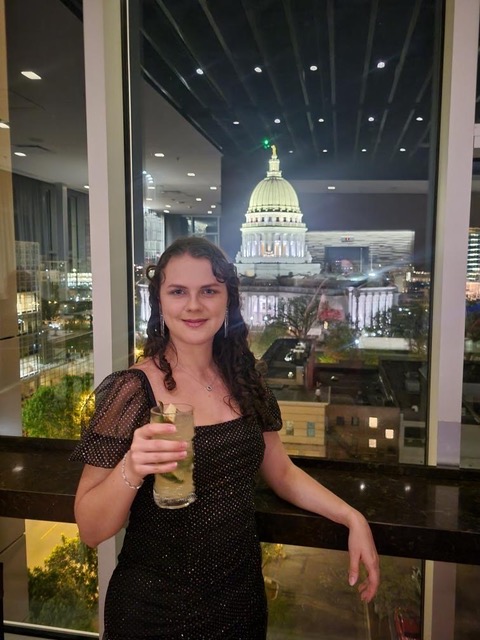
What is the culture of the country like?
I will be only discussing Midwest, since USA is very big. People in the Midwest are incredibly lovely and helpful. Midwestern states are known for their kindness. “Dutch directness” will probably be considered rude. Wisconsin is a swing state but has been mostly “blue” (democrats winning) in the past few elections. Since Madison is a capital city, it is very liberal and welcoming to all people. There are many restaurants that you could go to. You can probably find any kind of food you like, at all price points. USA has a tipping culture of about 20%. Guns and other firearms are legal in USA, but it is not legal to bring them into university buildings. It is important to be aware of your surroundings and report suspicious behaviour. Mass shootings usually do not occur at universities, but during my stay, Michigan State University had a shooting, with three fatal casualties. It is important to remain aware. In fall, there was a shooting on state street in Madison, which was a result of a brawl between two people, not related to the university. State street can also be dangerous due to robberies and stabbings. Crime is quite common in USA, some regions being more known for it than other. Madison does not have much crime, and campus areas have very little crime due to security cameras and university police.
Could you give a general price indication of the place of residence compared to living in Wageningen?
As mentioned, I paid about $1000/month, where in Wageningen I approximately paid 400 euros per month.
Could you give some information about public transport infrastructure?
Public transport in Madison works well and is free for university students. You will receive a public transport card. Taxis will be rather expensive, so people use Uber, or Bolt. The university is reachable on foot from downtown/dorms (most common way of transport). Cycling is rather popular, but cycling paths are not common in USA, so you need to cycle on the road, which looked very dangerous to me.
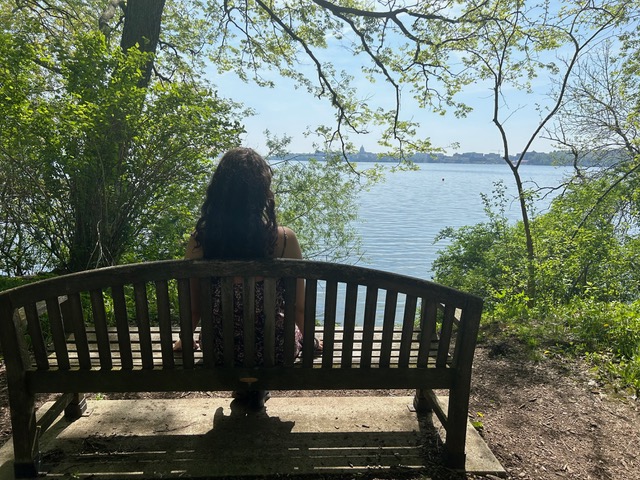
6. Free time
What are must-sees in the area?
Madison is a rather large city on its own. It’s worth going on a state capitol building tour with a guide (free, a tour every hour between 9-16. It is also worth to see the Henry Vilas Zoo, the UW Arboretum, picnic point, Allen Centennial Gardens. If you want to travel outside of Madison, the closest city is Milwaukee (3 hours by bus), or Chicago (over 4 hours by bus). It is worth travelling if you meet somebody who owns a car, as that cuts the travel time by half. If you choose to travel by bus, it is still valuable to see Chicago, but probably for longer than a day. Many people travel during spring break (week off classes in March), but it is important to book tickets as early as possible. If you want to stay in USA after your semester ends, your visa will probably offer a grace period of 3-4 weeks, so you could travel then. You can also enter the country 30 days before your program starts.
What does not appear in the travel guide, but is worth a visit?
You will receive a travel guide from UW-Madison, which has pretty much everything on it. Personally, I loved Chicago, as well as the Madison Arboretum.
Do you have general tips and tricks about leisure time?
There are many restaurants to choose from in Madison. There is also an abundance of bars. Many bars require a cover fee on Thursday and Saturday nights (around $5). You need to be over 21 years old to enter a bar. Moreover, fraternities usually throw parties on Thursday and Saturday nights. These parties might require a cover fee, but usually they do not. Often, women will not have to pay the cover fee, even if it is in place (fraternities usually consist of only men, and thus when they throw a party, they try to encourage more women to come). Moreover, Madison has movie theatres, book shops, cafes, and many other places you could go to in your free time.
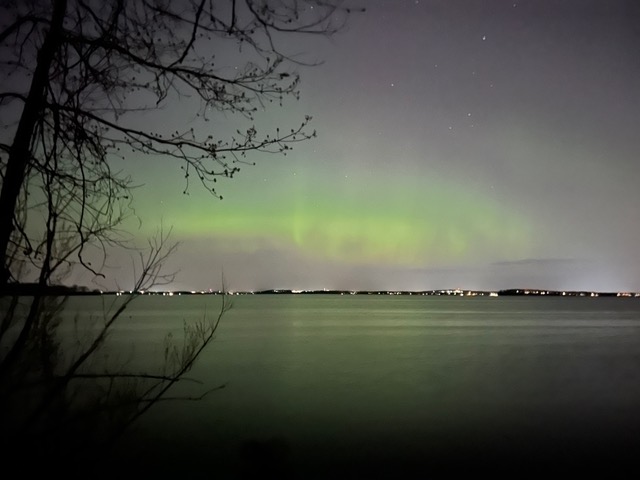
7. Challenges & best moment abroad
What was a challenge you have experienced?
I personally did not get on well with my first roommate, because of her behaviour. Good news is that you can switch rooms easily, depending on your situation. I got moved to a different room in the same hall and felt a lot better for the remaining part of my stay.
What was your best memory abroad?
Meeting people – especially food science. I have never met funnier, more supportive, and just generally amazing people. It was a joy to meet them and take courses with them. I also featured in a 90-minute movie made by a student film group – seeing and hearing myself on a cinema screen was the craziest thing I have ever experienced.
8. Contact Details
Would you like to ask Klaudia more questions about her exchange?
Send her a mail: Klaudia.gawronska@wur.nl
